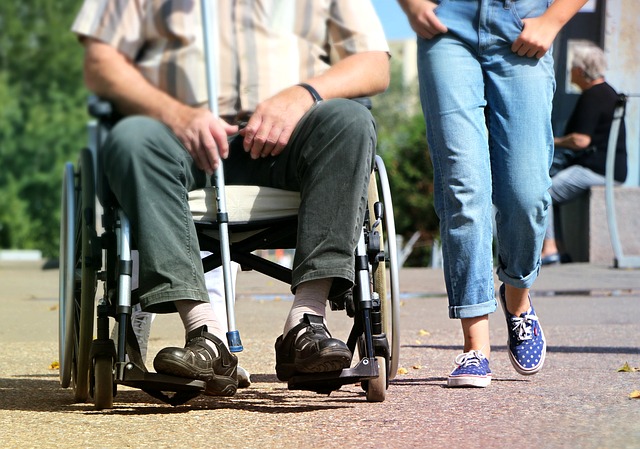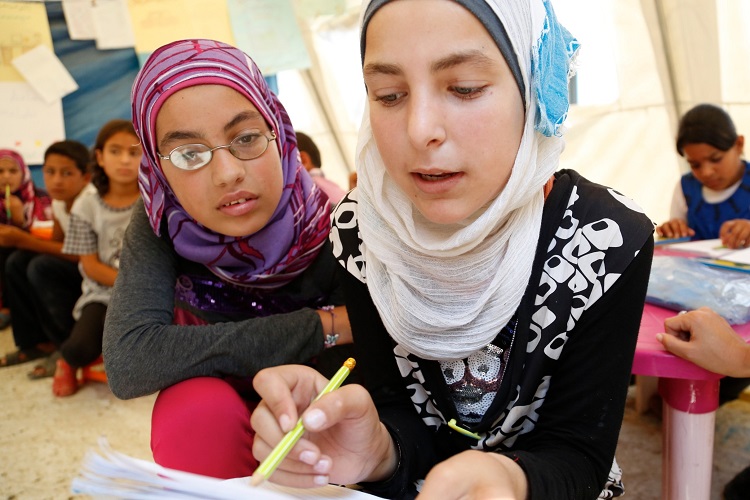Everybody deserves a chance to live the best quality of life that can be possibly afforded to them, no matter who they are. And there are some people, that are of a vulnerable status, that need more help than others in regards to finding this quality of life, which is why all the help that can be thrown their way should be. There is no single definition for the term ‘vulnerable people’ but there are factors that contribute towards its status, the main one being the need for continuous care and assistance due to mental or physical disabilities, or because of age.
You can help those who are deemed to be vulnerable because of mental or physical disabilities in a number of ways, but there are a lot of barriers in place due to safeguarding acts and the need for training and qualifications. However, if you do ever find yourself in a situation where you can make a positive impact on the quality of life of somebody with special needs, you must remember a few vital points, most of them contribute to the need for those with special needs having to feel as if they are being treated with the utmost respect. A pivotal step in doing so is by learning all the correct terminology in regards to the way in which you refer to anybody involved and any of the medical conditions that are involved. When speaking about or to somebody with a disability you must always remember to refer to them as a person, and not just their condition. Calling somebody a ‘mentally ill person’ is NOT correct, whereas referring to somebody as a ‘person who has a mental illness’ is. This is just basic politeness and instantly shows that you are not objectifying based on any conditions that are involved in the situation, and are instead placing an individual’s personhood before it. Also, when in communication with anybody of a vulnerable status that you are seeking to help, you should always seek to communicate with them rather than any carer, chaperone or healthcare professional that may be by their side. Even if an individual is using an interpreter in order to communicate, you must still base the conversation around them and direct it in their direction, rather than have it filter through the help. There are a host of special needs organisations that you can always seek to work alongside in some sort of capacity.
Those that are deemed vulnerable because of their age, no matter what side of the spectrum, should also be given as much help as possible; those that are in their latter years, rather than their earliest ones, you can always seek to help. You can do so in a number of ways: you can simply make time for them in the day, you can help them with physical activities that they are not now able to complete, or you can look out for their wellbeing by making sure the professional care they receive is up to scratch. Making time for any elderly person that may be a family member or friend, or anybody else that you think needs help and that you want to help, can encompass a host of different approaches. It can simply be taking the time out of your own day to have a chat and cup of tea or it can mean you tending to their physical or mental well-being. By keeping an elderly person active, i.e. by taking them on short distance walks, you can contribute to their fighting of conditions that are rife in old age as well helping to reduce their functional age; and by looking out for signs of unsteadiness and forgetfulness you can help to get the treatment of mental health issues, such as dementia, treated as early as possible. If this seems like a role in life that is a calling for you, then you could consider offering extensive and professional companion care on a continuous basis. Whether it’s doing jobs such as homemaking, driving or even overnight assistance, there are always roles out there that need to be filled. But if you cannot offer this level of commitment and support, then that is fine too; there are many differing levels of ways that help can be give: as previously mentioned, you can help by making sure that the help an elderly person receives is up to scratch. If you feel or suspect that an elderly person you know is either not getting the support they were promised by a professional, or are even being abused in any kind of way, then you should learn how to file a nursing home complaint. Doing so will mean that you are saving them from potential danger and getting them out of a situation that is degrading their personhood.

And, when it comes to helping the elderly, first and foremost, you should always seek to help them retain their independence. This is the most important aspect to remember, regardless of what type of support you offer. You can do so by convincing them that it may be time to make suitable adaptations to their home in order to help them in the retaining of a good quality of life, or by making said adaptations yourself. Staying in the family home is the desire of most elderly people as it is the place in which they created countless family memories over the years, but in order to cope with the detection of physical capabilities, certain adaptations must be made; these could include having a stairlift fitted so that they don’t have to tackle the stairs when seeking to go upstairs, having a toilet installed downstairs so that they don’t have to go far when nature calls, or by making the home easily accessible to them through the fitting of ramps (if wheelchairs are involved) or handrails. However, if, for whatever reason, the layout of the home in question makes for the installation of these adaptations impractical, then you should not be afraid to try and convince the elderly person in your care that it may be time to downsize.
On the other end of the age spectrum, children of a vulnerable status should also be looked out and cared for. Children, more so than any other type of person, vulnerable or not, need help. They need adult figures in their lives that offer guidance; what they do not need is be growing up and developing in a toxic and unhealthy environment. In order to be able to work alongside any children, let alone those that are deemed vulnerable, you must be qualified and vetted to do so. In order to become qualified there are always accessible online courses; in order to be vetted to be able to work with kids, you must not have any type of lawful record that states you are unfit to do so.
But if you are qualified and able to do so, then the possibilities are endless in the roles that you can fill in regards to the helping of children. One of which is to become a teacher. You can get into teaching in a number of different ways and in a number of different capacities; if you want to be able to make a continuous contribution to the lives of children, then you should consider making this career choice. If you do, however, you should be away that signs of child abuse aren’t always as clear as you think they are. It is not necessarily a case of looking out for bruises and marks; it’s about looking deeper than that and looking for mental scars. If you hear a child talk about being left to fend for themselves at home, if you notice a distinct lack of relationship with their ‘guardian’ or if you see that they are incapable of basic social skills, then the child or children in question may very well be suffering from abuse in some form or another.
If you want to help those that are vulnerable, you shouldn’t do it merely for the plaudits or because you think you may be reimbursed in any sort of way, you should do it because of a desire to make a difference on somebody’s life. In doing so, you may very well find yourself being thrown into a meaningful career path — if you are currently in a position where you are out of work or dissatisfied with the work that you are in, and you have a desire to see others happy, then helping those that need help the most may be your calling. If you have a long-standing desire to see anybody in your life who has special needs, is of an elderly status or is a child succeed and be happy in life, then offering them the best chance of having a good standard of living is what you should be doing.

